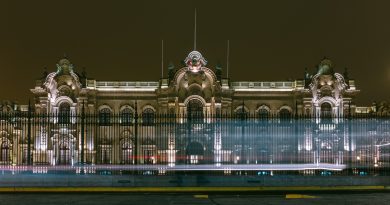Power Struggle in Sudan Sparks Fighting Between Military Groups
Aya Gusemalseed
Staff Writer
Tensions between military factions in Sudan rose on April 15, leading to deadly fighting between the official military and a paramilitary group known as the Rapid Support Forces (RSF) in the capital city, Khartoum, reports Reuters. Leaders of these military groups include army chief and Sudan’s De-facto ruler , General Abdul Fattah al-Burhan, and paramilitary commander of the RSF Lt. Gen. Mohamed Hamdan Dagalo, or better known as Hemedti. The two leaders are fighting for control of the country in the midst of a democratic transition deal that has stalled continuously. Tensions between the two started over a year ago over the direction the country was going, and the RSF claimed that military forces attacked them first. One foreign official described the relationship of the military leaders as “a loveless marriage where they hate each other’s guts” writes The New York Times.
Sudan’s transition to democracy began in 2019 after military generals removed longtime President Omar al-Bashir during popular uprisings. Sudan’s military has been a dominant force in the country’s politics since its independence in 1956, staging coups and fighting domestic wars. It was not until August of 2019 that an agreement was put in place for the military to share power with civilians until popular elections could be held. This deal, however, was put on pause by a 2021 coup in which general Abdul Fattah al-Burhan overthrew the civilian prime minister and declared himself president.
This sparked a new pro-democracy campaign across Sudan, reports Reuters. The central cause of tension since the uprising is the civilian demand to gain oversight of the military and to witness the integration of the RSF into the regular army. A leading reason for Bashir’s downfall was the worsening economic crisis which sent the currency plummeting and led to shortages of bread and fuel. Billions of dollars in international support and debt relief were halted after the 2021 coup.
General Hemedti has said the 2021 coup was a mistake and attempted to present himself and the RSF as being on the side of the people, against the Khartoum elites. General Burhan, on the other hand, has stated the army will only fully hand over power to an elected government, further sidelining civilian representatives expected to be included in a power-sharing deal, according to BBC News. There are suspicions that both generals, as well as their supporters, are concerned about what will happen to their influence if they are removed from their positions of power, BBC News furthers.
Reuters reports that Sudan’s rival commanders came to the agreement of a 24-hour cease-fire from the evening of April 18, due to pressure from Antony Blinken, the U.S. Secretary of State. The fighting in Khartoum also involved shots being fired at a U.S. diplomatic convoy and led to the death of at least one American, reports NBC News. The United Nations has described the fighting happening in Sudan as a “humanitarian catastrophe,” including the near collapse of the health system.
The April 18 ceasefire did not hold however and fighting resumed within hours. Another ceasefire was attempted for the Muslim holiday of Eid, but that ceasefire fell through within hours with the death toll rising to over 400, reports BBC News.
Forces loyal to the dueling generals fought for key location in Khartoum and accused one another of violating the terms of the cease-fire. Gunshots were heard on April 18 in the background of live feeds by several television news channels shortly after agreed upon time for the cease-fire, with both the army and RSF releasing statements accusing each other of failing to respect the terms of the agreements.
The army’s high command stated that it would continue operations to secure the capital Khartoum along with other regions. Both sides told Al Jazeera they were in favor of the agreed upon ceasefire. “We are keen to implement the truce and restore normal life in the city. But the RSF is a militia that does not respect anything,” said Colonel Khaled Al-Akida, an army spokesperson, to Al Jazeera. As fighting between rival factions continue, fears of a full-blown civil war are high, and Sudan’s road to democracy becomes more tumultuous.


